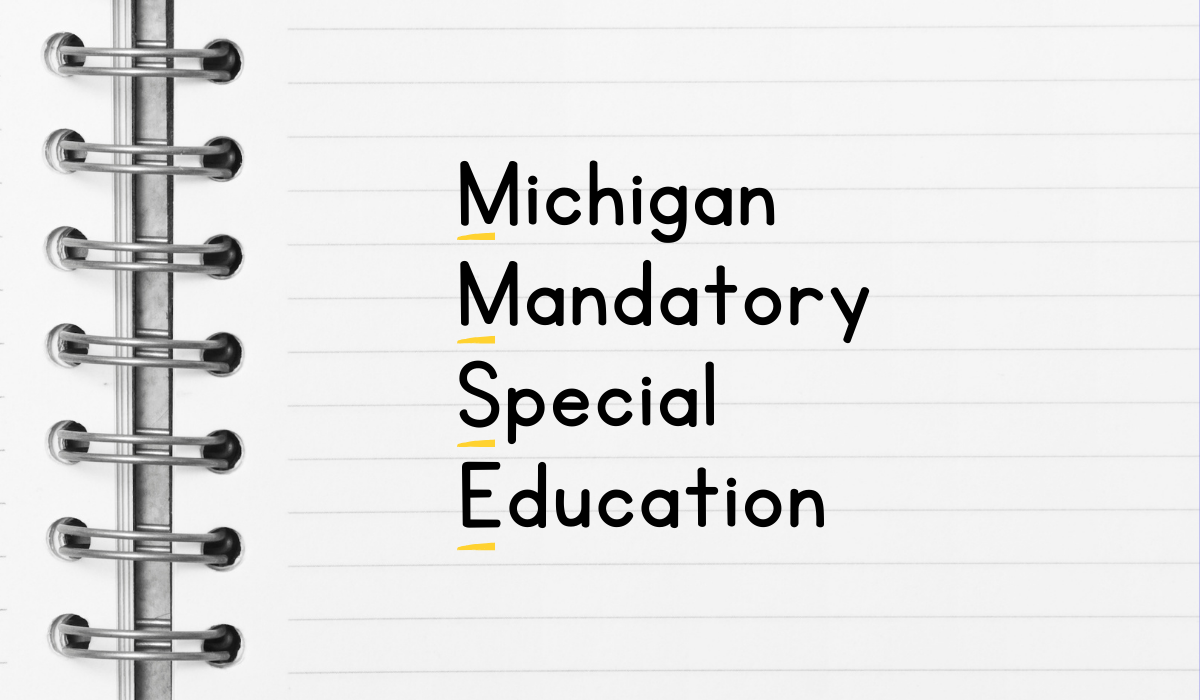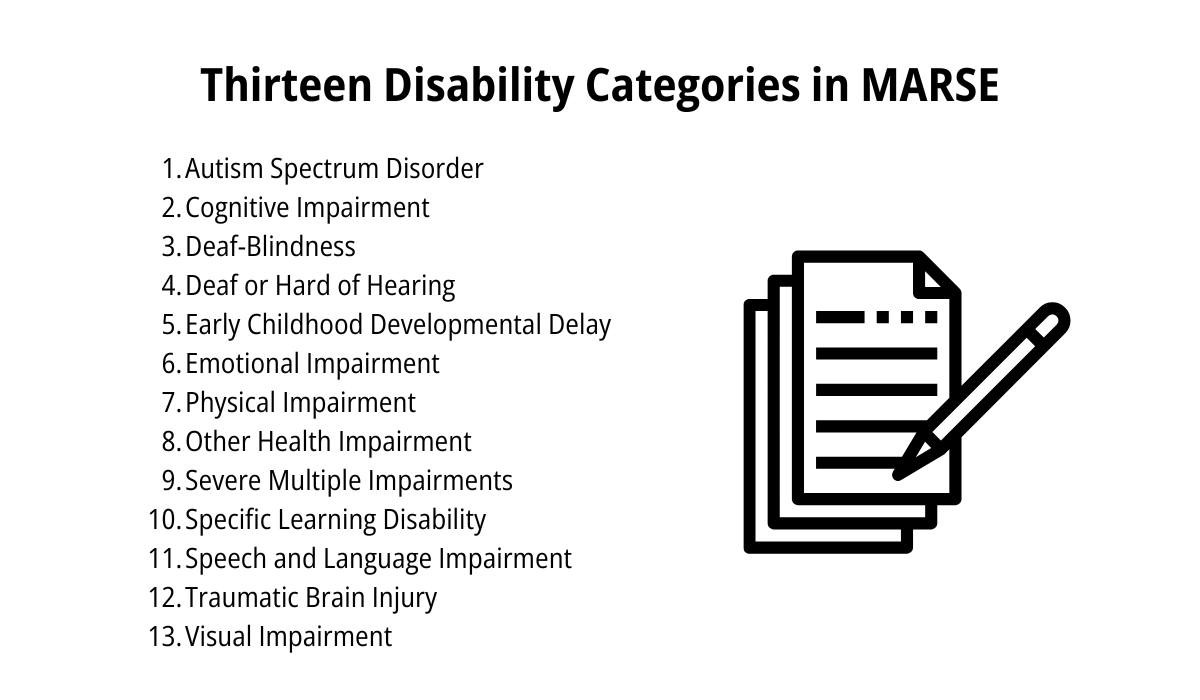
Students with multiple impairments have more than one disability in cognitive, physical and/or functional abilities. They typically require intensive intervention and supports for activities of daily living. MARSE- Eligibility under the category Severe Multiple Impairment Rule 340.1714 Multiple Disabilities Multiple disabilities means a student has more than one serious disability which may affect mobility, behavior, emotion or… Continue Reading Severe Multiple Impairments

Other Health Impairment (OHI) is a category of disability recognized by the Individuals with Disabilities Education Act (IDEA). Other Health Impairment Other health impairment means having limited strength, vitality, or alertness, including a heightened alertness to environmental stimuli, that results in limited alertness with respect to the educational environment “due to an acute or chronic health… Continue Reading Other Health Impairments

The terms partially sighted, low vision, legally blind, and totally blind are used in the educational context to describe students with visual impairments. Children with vision impairment often need special education and other services to help in their development Visual Impairment, Including Blindness Facts About Vision Loss CDC Introduction to Diagnosis How will this affect… Continue Reading Visual Impairment
Search all pages on the MAF website: Search for: A B C D E F G H I J K L M N O P Q R S T U V W X Y Z A Return to top About Michigan Alliance for Families ABLE Act Access to Records Accessibility Resources Accommodations and Modifications Accountability… Continue Reading All Topics A-Z

Michigan Mandatory Special Education can seem like a tangle of laws and rules. It’s important to start with these facts: Michigan law requires special education services be provided for eligible children and students from birth through age 25. This is referred to as MMSE. Part B of the Individuals with Disabilities Education Act (IDEA) refers… Continue Reading MMSE

People with Sensory Processing Disorder have difficulty processing sensory information and responding appropriately to that information. Sometimes sensory processing difficulties are seen as noncompliance or bad behavior. This can result in problems with behavior, social participation, self-regulation, and impaired skills for daily life tasks. Be sure to visit our Behavior Resources webpage for more resources. What is… Continue Reading Sensory Processing

Lead poisoning can harm a child’s development. It’s important that children be evaluated and special attention is paid to their growth and development. Michigan Alliance for Families can explain what local resources can help assess and monitor your child’s development through early intervention and special education services. These services are free to families. Connect with… Continue Reading Lead Poisoning

The Michigan Administrative Rules for Special Education (MARSE) define eligibility for special education services within thirteen categories of disability. Below, clicking on the name will take you to disability specific information. Clicking on the rule listed at the end of each description will take you to the eligibility rule. More information on the evaluation and eligibility process… Continue Reading Eligibility Categories

The word “deaf-blind” may seem as if a person cannot hear or see at all. The term actually describes a person who has some degree of loss in both vision and hearing. The amount of loss in either vision or hearing will vary from person to person. The combination of losses limits access to auditory… Continue Reading Deaf-Blind

Be sure to visit our Eligibility webpage for more resources on this topic. Don’t see what you’re looking for? Search the bigger A-Z list or contact us. Initial Evaluation for Special Education Fact Sheet Family Matters نشرة حقائق التقييم الأولي لتعليم ذوي الاحتياجات الخاصة (العربية) Hoja informativa: Evaluación inicial para la educación especial (español) Does my child need special… Continue Reading Evaluation










